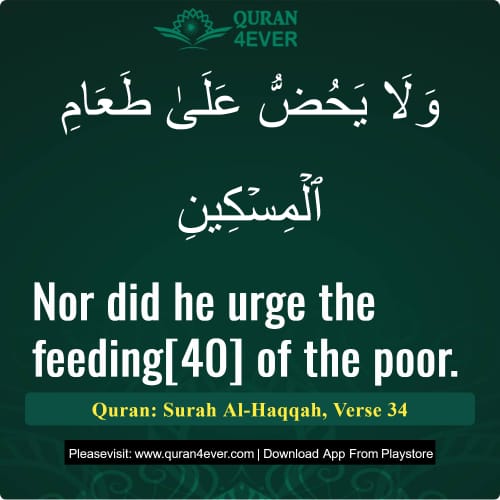
Transliteration:( Wa laa yahuddu 'alaa ta'aamil miskeen )
"Nor did he urge the feeding [40] of the poor."
In this verse, it is emphasized that the disbeliever not only denied belief in Allah but also failed to act righteously, particularly in caring for the poor. The verse indicates that, despite acknowledging the existence of Allah, the individual neglected to engage in charity and to care for the needy, which are key aspects of a righteous life in Islam. True belief in Allah is not just about verbal affirmation but is demonstrated through actions, such as helping those in need.
Even though many disbelievers might acknowledge Allah, their failure to follow His commands, such as feeding the poor and supporting justice, exposes the inadequacy of their belief. This shows that faith without good deeds and social responsibility is incomplete.
The tafsir of Surah Al-Haqqah verse 34 by Ibn Kathir is unavailable here.
Please refer to Surah Haqqah ayat 25 which provides the complete commentary from verse 25 through 37.
(69:34) nor would he urge the feeding of the poor.[20]
20. That is, not to speak of feeding a poor man himself, he did not even like to say to others that they should feed the hungry.

For a faster and smoother experience,
install our mobile app now.
Related Ayat(Verses)/Topics